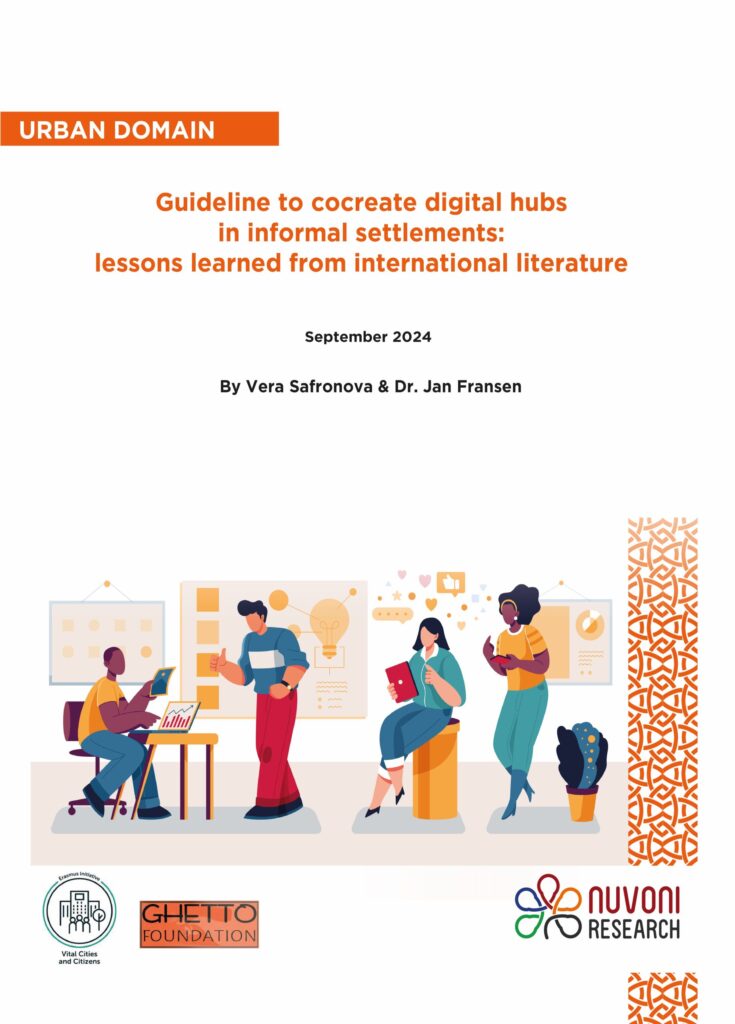
Guideline to co-create digital hubs in informal settlements: Lessons Learned from International Literature
The Kenyan government, through its Information and Communication Technology Agency (ICTA), has developed a 5-billion Euro digital master plan to roll out ICT throughout the country. This includes plans to set up 1,450 digital hubs within urban neighborhoods and villages. The government recognizes that digital hubs in informal settlements should respond to specific local challenges and opportunities. Considering the gap between those who have access to information and communication technology and those who do not, called the digital divide, such support is much needed.
However, international literature shows that most digital hubs fail, as they do not reach their target group, or computers and free internet services are not maintained after the project ended (Datta, 2019; Wamuyu, 2017). They often lack sustainable financial support to maintain operations and equipment (Bailey & Ngwenyama, 2013; Datta, 2019; Wamuyu, 2017). Rather than supporting those in need, they support better-off community members who are already employed (Taylor et al.,2023). They may also be located in formal buildings which informal settlers are afraid to access or cannot access due to limited opening hours or formal registration requirements.
This paper offers a literature review to describe the existing knowledge on digital hubs in informalsettlements. It aims to offer a practical guide on how to co–create digital employment hubs, questioning what problems they address, what their objectives are, and what activities, and governance structures they employ. Following an outline of the research methodology, we discusswhat digital hubs are, identifying their aims and objectives, target groups, activities and governance arrangements. We conclude by visualizing the key steps of the co–design process and summarizing the key issues to consider when co–designing a digital employment hub in the context of marginalized urban populations.
- Authors
- Vera Safronova
- Dr. Jan Fransen
- Submition Date
- September 2024

Physical Address
No. MK088, Ushindi West Avenue,
Mukuyu Rd (Mukuyu West Wing), Thome 1
Nairobi, Kenya
Organization
Subscribe for newsletter & get news, events and publications updates
Contact Us
Office Tel: (+254) 20 8009928 |
Mobile: (+254) 706 324 467
© 2026 Nuvoni Research

